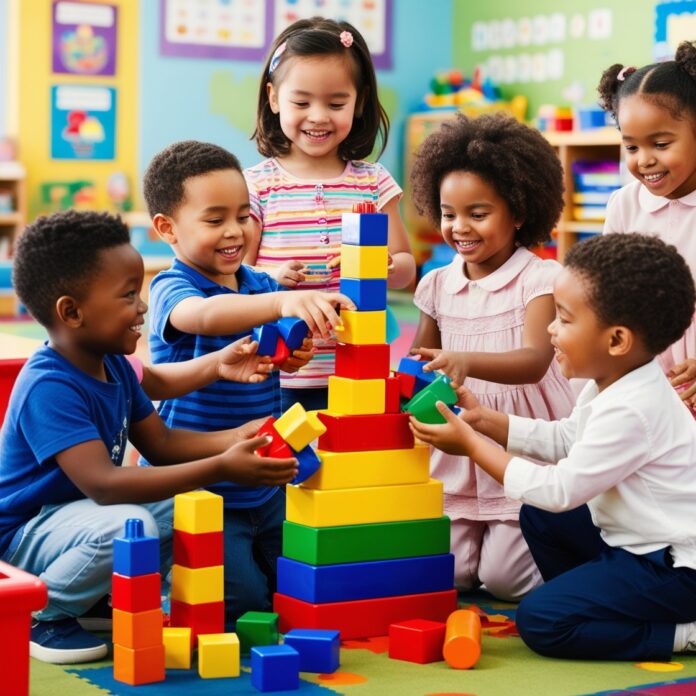Helping young children develop social skills, including sharing, is one of the most important features of their emotional and cognitive development. These skills cultivate healthy relationships and lay the foundation for effective communication and teamwork. The earlier parents and educators begin teaching sharing and social skills, the more supportive the environment will be for a child’s overall development.
The Importance of Social Skills in Early Childhood
Early childhood is quite a tender age in developing social skills, whereby the children learn to interact, put themselves in other people’s shoes, and cooperate. Good social skills ensure emotional intelligence in children, helping them handle their emotions and relate well with others. These skills also give a platform for succeeding academically and in later working life.

Strategies to Teach Sharing and Social Skills
1. Set an Example of the Behavior You Wish To Observe
Children are natural imitators. Demonstrating kindness, patience, and sharing in your daily interactions sets a powerful example. For example, if you are sharing a snack, describe your actions: “I am sharing my apple with you because it is kind to share.”
2. Use Play as a Teaching Tool
Playtime is a great avenue to practice social skills. Engage in activities that require teamwork, such as building blocks or group games. Children can learn the give-and-take of sharing and feel the thrill of teamwork through these scenarios.

Pro Tip: When a child struggles to share a toy, narrate their feelings: “I see you’re upset because you want to play with the truck. Let’s take turns.”
Encouraging Empathy and Understanding
3. Read Stories on Sharing
Children’s books on the subject of sharing and cooperation may help them understand such abstract ideas more clearly. Other stories about characters who resolove a conflict working together can encourage children to do the same.

4. Praise Positive Behavior
Good behavior should be reinforced with specific praise to ensure it will be repeated. Rather than stating, “Good job,” for example, you could say, “I loved how you shared your crayons with your friend today!”
5. Role-Play Common Scenarios
Create role-playing games where children act out situations like taking turns or helping a friend in need. These activities help them anticipate real-life scenarios and prepare appropriate responses.
Managing Resistance to Sharing

6. Acknowledge Their Feelings
It’s very normal for them to be possessive over their things. The emotional ventilation should be allowed by acknowledging, “I understand you don’t want to share your teddy now.” Offering alternatives, such as setting a timer to take turns, may make the process easier.
7. Gradual Exposure to Group Settings
Regular playdates or group activities allow the children to get comfortable being with their peers. In time, they will practice sharing and socializing when that becomes their setting.
Overcoming Common Challenges
8. Don’t Force Sharing
Forcing a child to share before they’re ready can have the opposite effect, leading to resentment. Instead, help them learn the rewards of sharing, such as watching a friend light up with a smile.
9. Encourage Problem-Solving
Give the child phrases to use in disputes, such as “Can we take turns?” or “How about we play together?” Children can settle disputes on their own when they are taught problem-solving techniques.
The Role of Parents, Teachers, and Caregivers in Social Skill Development
Parents, teachers, and caregivers alike all have important roles to play in developing a child’s social capabilities. Good communication regarding expectations, consistent reinforcement, and home-school coordination will ensure consistency in how these skills are taught.
10. Celebrate Successes
Keep track and celebrate when a child initiates sharing or resolves a conflict with another child on his or her own. Such acknowledgment reinforces that their efforts were worth the work.

Early children social skills and sharing instruction calls for perseverance, consistency, and inventiveness. By modeling desired behaviors, engaging in meaningful play, and encouraging empathy, caregivers can foster a positive and cooperative mindset in young children. The results will not only benefit the child but also contribute to a more compassionate and harmonious community.



